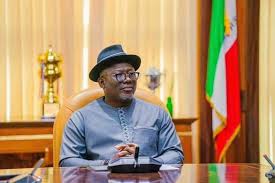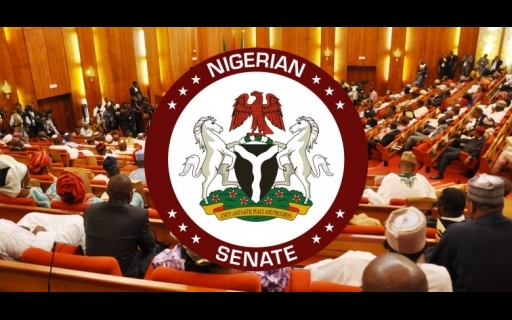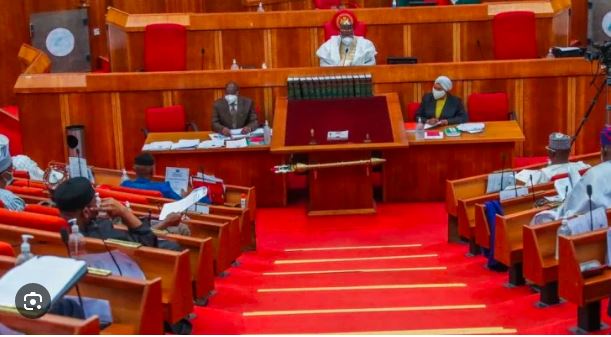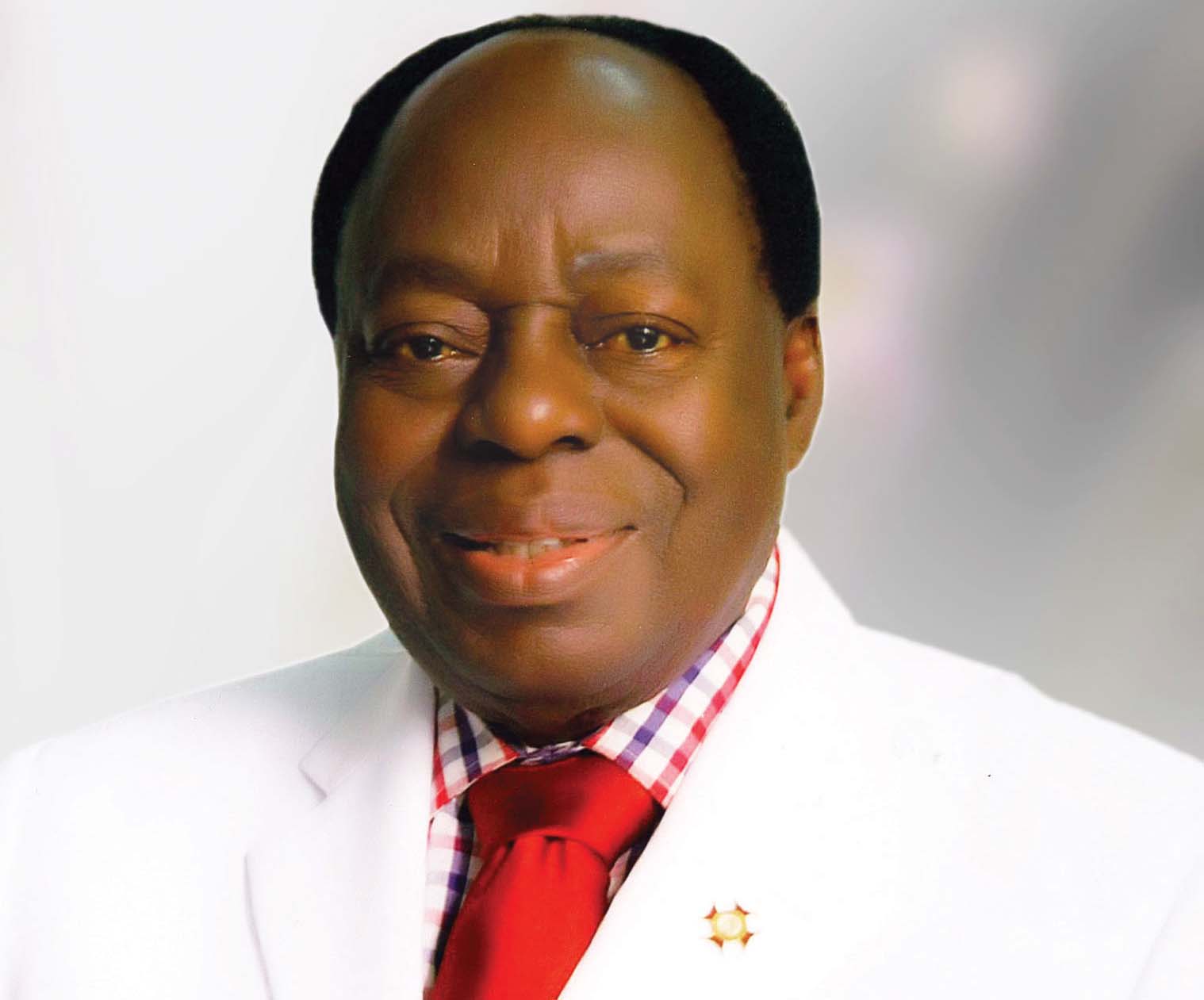Headlines
Parliament Pressures Buhari to Sign Act that Changes Rules in Middle of Electoral Process
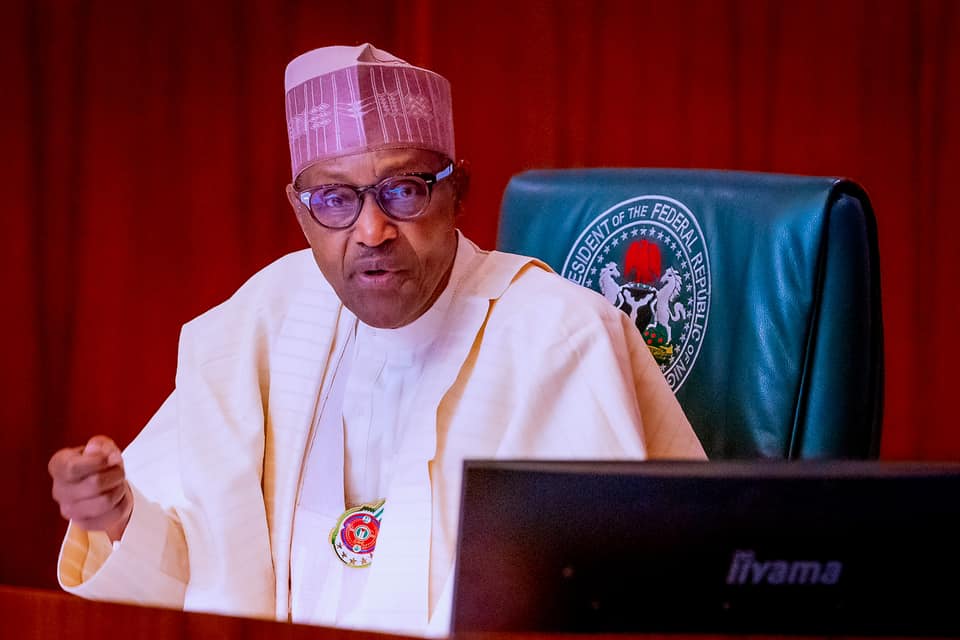
By Derrick Bangura
Members of the National Assembly have started mounting pressure on President Muhammadu Buhari to assent to the amended Section 84 (12) of the Electoral Act, which some analysts have said would amount to altering rules of the electoral process in the middle of the game.
This is coming at a time the Supreme Court has joined the Rivers State government in a suit seeking its interpretation of the controversial Section 84 (12) of the Electoral Act, 2022.
However, analysts also expressed concern that if the president yields to the pressure of the lawmakers and assents to the amended section of the Act, it might affect the timetable for the 2023 general elections that had been released by the Independent National Electoral Commission (INEC) because under the electoral body’s schedule of activities, elections for delegates ought to take place this weekend.
More so, some analysts pointed out that what members of the National Assembly did was that they amended the Act for their gains.
“Essentially, once they passed the Electoral Act, INEC released the timetable and the process started. They now went back and changed the rules when the game has already started,” the source added.
The federal legislature had last week amended Section 84(12) of the Electoral Act to enable some categories of non-elected offices within the executive officers of the 18 registered political parties to vote at the various categories of party executives, including the President, Vice President, Governors, and Deputy governors, at the congresses and national convention expected from Saturday.
Given this, the 18 registered political parties have not been able to present their delegates lists, because the President has yet to assent to the amended act.
The implication is that only the statutory delegates and the elected three-man-delegate as well as local governments’ delegates could vote at the congresses expected to commence Saturday.
In the PDP, for instance, a source said the delegates list was not ready, because the NWC was waiting for the signing of the amended section 84 (12) to enable the party to compile a list of the executives from the wards to the states congresses.
Specifically, Section 84(8) of the Electoral Act, initially allowed only elected delegates of a party to participate in conventions and congresses. But the National Assembly, last week, amended the Electoral Act to allow statutory delegate to participate and vote in party conventions, congresses, and meetings.
However, in his argument, the Deputy Senate President Omo-Agege, said the amendment sought to make provision for those who would not be elected as ad-hoc delegates to participate in the conventions, congresses, or meetings of political parties.
He further asserted that the initial section of the Bill was an error on the part of the legislature.
Corroborating Omo-Agege’s presentation, Senator Uche Ekwunife, said the amendment was a straightforward one, adding that, “without this amendment, most of us will not have the liberty of voting during the convention. I support the amendment. Let us have it for second reading.”
Senator Sabi Abdullahi, said, “This Bill is very straightforward, and let us put in on record that this error was something that happened inadvertently. We have seen the error and that is why we are back here to ensure nobody suffers any harm.”
The Bill was read the second time and referred to the Committee of the Whole where it was passed.
THISDAY, however, gathered that if by the end of Friday, the bill was not signed into law by President Buhari, then, executives of the 18 political parties would not be allowed to vote at the presidential conventions, National Assembly congresses, governorship congresses, and other congresses to elect the standard-bearers of their candidates.
S’Court Joins Rivers in Case over Section 84 of Electoral Act
Meanwhile, the Supreme Court, on Thursday, joined the Rivers State government in a suit seeking its interpretation of the controversial Section 84 (12) of the Electoral Act, 2022.
The apex court joined the state after its application for joinder was not opposed by other plaintiffs in the suit filed by President Buhari and the Attorney General of the Federation (AGF) and Minister of Justice, Abubakar Malami (SAN).
The hearing was earlier slated for May 19 but has now been adjourned to May 26 to enable parties’ exchange processes.
But the Speaker, Rivers State House of Assembly, and the State Attorney General were joined as second and third defendants in the suit. The National Assembly is the first defendant.
According to the applicants, they would be affected one way or the other by the outcome of the case since the subject matter in the originating summons relates to the validity and constitutionality of the provisions of Section 84(12) of the Electoral Act enacted by the National Assembly and applicable through-out the country, including Rivers state.
The 1st applicant claimed that the outcome would affect the “Legal rights of the Rivers State House of Assembly and impinge upon its legislative powers to make laws in addition to, but not inconsistent with Section 84(12) of the Electoral Act enacted by the National Assembly and applicable in Rivers State and will affect the scope of its authority to make laws as conferred on it by Section 7 and Item E. 12 of the concurrent legislative list of the constitution of the Federal Republic of Nigeria 1999 (as amended).”
The AG of Rivers said he should be joined in the suit as the state was constitutionally bound to be governed democratically by the letters and spirit of the constitution.
Responding, Buhari’s counsel, Lateef Fagbemi (SAN), said he was not opposed to the applicants joining the suit.
In the suit filed on April 29, 2022, marked: SC/CV/504/2022 by the President and the Chief Law Officer of the country, wherein they are contending that the said Section of the Electoral Act 2022 conflicted with constitutional provisions, has the National Assembly as the sole defendant.
The plaintiffs noted that the Constitution has made provisions for qualifications and disqualifications for the offices of the President and Vice President, Governor, and Deputy-Governor, Senate and House of Representatives and House of Assembly, Ministers, Commissioners, and Special Advisers.
Buhari and Malami prayed the apex court to declare that, by the joint and or combined reading of Sections 65, 66, 106, 107, 131, 137, 147, 151, 177, 182, 192, and 196, of the Constitution of the Federal Republic of Nigeria, 1999, (as amended), the provisions of Section 84 (12) of the Electoral Act, 2022, which also ignores Section 84(3) of the same Act, is an additional qualifying and/or disqualifying factors for the National Assembly, House of Assembly, Gubernatorial and Presidential elections as enshrined in the said constitution, hence, unconstitutional, unlawful, null and void.
“A declaration that having regard to the clear provision of Section 1(3) of the Constitution of the Federal Republic of Nigeria, 1999, as amended, read together with Section 4 of the same Constitution, the legislative powers vested in the defendant do not permit or empower it to make any other law prescribing additional qualifying /disqualifying grounds for election to the National Assembly, House of Assembly, Gubernatorial and Presidential election outside the express constitutional qualification and disqualification provisions as already provided in each or all of Sections 65, 66, 106, 107, 131, 137, 147, 151, 177, 182, 192 and 196 of the 1999 Constitution of the Federal Republic of Nigeria (as amended), and without amendment to any of those sections is for the reason of inconsistency, unconstitutional and therefore null and void.
“A declaration that Section 84 (12) of the Electoral Act, 2022 disqualifying a political appointee from being a voting delegate or be voted for at a convention or congress of any political party for the nomination of candidates for any election is discriminatory, inconsistent with and in violent breach of the provision of each or all of Sections 42, 65, 66, 106, 107, 131, 137, 147, 151, 177, 182, 192 and 196 of the Constitution of the Federal Republic of Nigeria, 1999, (as amended), as well as Article 2 of the African Charter on Human and Peoples Rights and some is null and void because of its inconsistency.
“A declaration that by the introduction of the provisions of Section 84(12) into the Electoral Act, 2022, but in disregard of Section 84(3) of the same Act, the Defendant has acted ultra vires the legislative powers vested in it under the provision of section 4 of the Constitution of the Federal Republic of Nigeria, 1999 (as amended) and/or in violation or breach of the provisions of Sections 65, 66, 106, 107, 131, 137, 147, 151, 177, 182, 192 and 196, thereby rendering Section 84(12) of the Electoral Act, 2022 unconstitutional, null and void.”
They also prayed for an order nullifying the provisions of Section 84 (12) of the Electoral Act, 2022 by application of the blue-pencil rule, for being unconstitutional, illegal, null, and void, and having been made more than the legislative powers of the defendant as enshrined in Section 4 of the 1999 Constitution (as amended).
House Minority Caucus Urges Buhari to Sign Electoral Act
The Minority Caucus in the House of Representatives has urged President Muhammadu Buhari to immediately sign the one item amendment to the Electoral Act 2022 transmitted to him by the National Assembly, last week, to avert an imminent political crisis in the country.
The caucus, in a statement by its leader, Hon. Ndudi Elumelu, said the President’s delay in signing the single amendment to Section 84 (8), has thrown the nation into serious confusion and constituted a huge threat to democracy and the smooth conduct of the 2023 general election.
The lawmakers, therefore, warned that any further delay in signing the amendment to the Electoral Act to give political parties a sense of direction in the conduct of primaries for the election of candidates for the 2023 general election can derail the entire democratic process and destabilise the nation.
“As representatives of the people, the Minority Caucus urges Mr. President to avert an imminent political crisis, which has the capacity of exacerbating the security situation in the country by immediately signing the Amendment to the Electoral Act 2022 and leaving a legacy of a credible electoral process to the nation.
“Our caucus calls on all Nigerians, the Civil Society, the International Community, and all lovers of democracy to prevail on President Buhari to immediately sign the amendment to the Electoral Act 2022 and save our nation from an avoidable crisis.”
Mark: PDP Will Not Compromise Her Rules
In a related development, the Chairman of the Peoples Democratic Party (PDP) 2023 National Convention Organizing Committee, Senator David Mark, has urged party faithful across the country to imbibe the spirit of sportsmanship in the conduct of the exercises, promising that the PDP would not compromise her own rules.
In a statement issued ahead of the party primaries, which began with the election of candidates for the state Houses of Assembly seats on Saturday (May 21, 2022), Mark urged party men and women to comply with the rules of the game.
The former senate president between 2007 and 2015, said, “The Party has clear guidelines and rules for the exercises. Every aspirant should be guided by the processes. The party will not compromise any of the rules.”
He counseled delegates to the congresses and conventions to consider the integrity and past accomplishments of aspirants to make informed choices of candidates for the elections.
“In making your decisions, consider the interest of the people. Politics is a conveyor belt to serve humanity. The greater interest of our people is paramount,” he said.
He, therefore, cautioned against politics of acrimony, bitterness, or violence, saying, “see politics as a sporting competition. If you don’t win today, you can win tomorrow.“
Headlines
Noble Ladies Champion Women’s Financial Independence at Grand Inauguration in Abuja

Women from diverse backgrounds across Nigeria and beyond gathered at the Art and Culture Auditorium, Abuja, for the inauguration and convention of the Noble Ladies Association. The event, led by the association’s Founder and “visionary and polished Queen Mother,” Mrs. Margaret Chigozie Mkpuma, was a colourful display of feminine elegance, empowerment, and ambition.
The highly anticipated gathering, attended by over 700 members and counting, reflected the association’s mission to help women realise their potential while shifting mindsets away from dependency and over-glamorization of the ‘white collar job.’ According to the group, progress can be better achieved through innovation and creativity. “When a woman is able to earn and blossom on her own she has no reason to look at herself as a second fiddle,” the association stated.
One of the association’s standout initiatives is its women-only investment platform, which currently offers a minimum entry of ₦100,000 with a return of ₦130,000 over 30 days—an interest rate of 30 percent. Some members invest as much as ₦1 million, enjoying the same return rate. Mrs. Mkpuma explained that the scheme focuses on women because “women bear the greater brunt of poverty” and the platform seeks “to offer equity in the absence of economic equality.”
Education is also central to the Noble Ladies’ mission, regardless of age. Their mantra, “start again from where you stopped,” encourages women to return to school or upgrade their skills at any stage in life. The association believes that financial stability is vital in protecting women from cultural practices that dispossess widows of their late husbands’ assets, while also enabling them to raise morally and socially grounded families.
Founded on the vision of enhancing women’s skills and achieving financial stability, the association rests on a value system that discourages pity and promotes purpose. “You have a purpose and you build on that purpose to achieve great potentials and emancipation,” Mrs. Mkpuma said.
A criminologist by training and entrepreneur by practice, she cautions against idleness while waiting for formal employment. “There are billions in the informal and non-formal sectors waiting to be made,” she said, rejecting the “new normal of begging” and urging people to “be more introspective to find their purpose in life and hold on to it.”
Mrs. Mkpuma’s management style keeps members actively engaged, focusing on vocational skills and training to prepare them for competitive markets. She is exploring “innovative integration of uncommon technologies” and is already in talks with international franchises to invest in Nigeria, with Noble Ladies as first beneficiaries.
The association’s core values include mutual respect, innovation, forward-thinking, equal opportunity, and financial emancipation. With plans underway to establish a secretariat in the heart of Abuja, the group aims to expand its impact.
The event drew high-profile guests, including former Inspector General of Police, Mike Okiro, and a host of VIPs, marking a significant milestone in the association’s drive for women’s empowerment.
Headlines
NEPZA, FCT agree to create world-class FTZ environment

The Nigeria Export Processing Zones Authority (NEPZA) has stepped in to resolve the dispute between the Federal Capital Territory Administration and the Abuja Technology Village (ATV), a licensed Free Trade Zone, over the potential revocation of the zone’s land title.
Dr. Olufemi Ogunyemi, the Managing Director of NEPZA, urged ATV operators and investors to withdraw the lawsuit filed against the FCT administration immediately to facilitate a roundtable negotiation.
Dr. Ogunyemi delivered the charge during a courtesy visit to the Minister of the Federal Capital Territory, Barrister Nyesom Wike, on Thursday in Abuja.
You will recall that the ATV operators responded to the revocation notice issued by the FCT administration with a lawsuit.
Dr. Ogunyemi stated that the continued support for the growth of the Free Trade Zones Scheme would benefit the nation’s economy and the FCT’s development, emphasizing that the FCT administration recognized the scheme’s potential to accelerate industrialisation.
Dr. Ogunyemi, also the Chief Executive Officer of NEPZA, expressed his delight at the steps taken by the FCT minister to expand the economic frontier of the FCT through the proposed Abuja City Walk (ACW) project.
Dr. Ogunyemi further explained that the Authority was preparing to assess all the 63 licensed Free Trade Zones across the country with the view to vetting their functionality and contributions to the nation’s Foreign Direct Investment and export drives.
“I have come to discuss with His Excellency, the Minister of the Federal Capital Territory on the importance of supporting the ATV to succeed while also promoting the development of the Abuja City Walk project. We must work together to achieve this for the good of our nation,” he said.
On his part, the FCT Minister reiterated his unflinching determination to work towards President Bola Ahmed Tinubu’s Renewed Hope Agenda by bringing FDI to the FCT.
“We must fulfil Mr. President’s promises regarding industrialization, trade, and investment. In this context, the FCT will collaborate with NEPZA to review the future of ATV, a zone that was sponsored and supported by the FCT administration,” Wike said.
Barrister Wike also said that efforts were underway to fast-track the industrialisation process of the territory with the construction of the Abuja City Walk.
The minister further said the Abuja City Walk project was planned to cover over 200 hectares in the Abuja Technology Village corridor along Airport Road.
According to him, the business ecosystem aimed to create a lively, mixed-use urban center with residential, commercial, retail, hospitality, medical, and institutional facilities.
He added that the ACW would turn out to be a high-definition and world-class project that would give this administration’s Renewed Hope Agenda true meaning in the North-Central Region of the country.
Barrister Wike also indicated his continued pursuit of land and property owners who failed to fulfil their obligations to the FCT in his determination to develop the territory.
Headlines
Benue IDPs block highway, demand return to ancestral homes

Vehicular movement along the Yelwata axis of the Benue–Nasarawa highway was brought to a standstill on Wednesday as Internally Displaced Persons, IDPs, staged a protest, demanding immediate return to their ancestral homes.
The protesters, believed to be victims of persistent attacks by suspected herdsmen, blocked both lanes of the busy highway for several hours, chanting “We want to go back home”.
The protest caused disruption, leaving hundreds of motorists and passengers stranded.
Eyewitnesses said the displaced persons, many of whom have spent years in overcrowded IDP camps, are expressing deep frustration over the government’s delay in restoring security to their communities.
“We have suffered enough. We want to return to our homes and farms,” one of the protesters told reporters at the scene.
Security personnel were reportedly deployed to monitor the situation and prevent any escalation, though tensions remained high as of press time.
Efforts to reach the Benue State Emergency Management Agency, SEMA, and other relevant authorities for comment were unsuccessful.
-

 Headlines4 years ago
Headlines4 years agoFacebook, Instagram Temporarily Allow Posts on Ukraine War Calling for Violence Against Invading Russians or Putin’s Death
-

 Headlines4 years ago
Headlines4 years agoNigeria, Other West African Countries Facing Worst Food Crisis in 10 Years, Aid Groups Say
-

 Foreign3 years ago
Foreign3 years agoNew York Consulate installs machines for 10-year passport
-

 News1 year ago
News1 year agoZero Trust Architecture in a Remote World: Securing the New Normal
-

 Entertainment3 years ago
Entertainment3 years agoPhyna emerges winner of Big Brother Naija Season 7
-

 Headlines1 year ago
Headlines1 year agoNigeria Customs modernisation project to check extortion of traders
-

 Economy2 years ago
Economy2 years agoWe generated N30.2 bn revenue in three months – Kano NCS Comptroller
-

 Entertainment2 years ago
Entertainment2 years agoMovie download platform, Netnaija, announces closure


